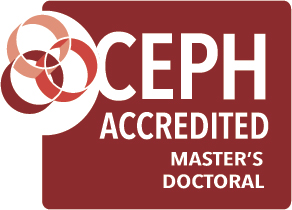PharmD/MPH – Dual Degree Option
Pharmacists are taking on a much larger role in patient-centered healthcare delivery, especially in managing chronic diseases and providing medical counseling.
A Master of Public Health (MPH) degree is an advantage to pharmacists, who are increasingly expanding their capabilities to bring healthcare to the community.
PharmD/MPH graduates will broaden their knowledge and expertise about public health competencies. Public health can also help expand practitioners’ impact to a larger population to achieve optimal patient outcomes.
Program Overview
The MPH Public Health Leadership Online is 42 credit hours with the potential to apply 9 PharmD credit hours, pending faculty review and approval. Courses are delivered online, allowing students to complete coursework any time of day. Experiential learning hours may also be eligible for application to both programs in certain circumstances.
Completion time will vary based on degree plan and enrollment pace. The majority of students complete the MPH program concurrently during their 4 years in the PharmD program. The MPH completion requirement is 6 years.
Pharmacist Roles with MPH
- Pharmacists become involved in providing public health services encompassing population health with a variety of other areas, including epidemiology, cultural competence, health promotion, disease prevention, and drug safety.
- Providing estimates with beneficial effects and adverse effects of medication in populations
- Combating opioid epidemic by working with federal, local government, and community organizations
- Working for U.S. Public Health Service Commissioned Corps: natural disasters or preparedness
- Monitoring for unwanted effects and other safety-related aspects of drugs
- Having a stronger opinion in making policy decisions with evidence-based data
- Pay more attention to the current health issues that are happening around the world
- Identifying prescription trends
About the Program
Full-time or part-time Choose the pace that’s right for you. Students balancing work, family and enrollment are encouraged to take 1 course each 8-week accelerated session. Students with no additional commitments may complete 2 courses each 8-week session. Part-time students complete the program in 3 years and Full-time students in about 2 years.
5 Starts a Year Online classes take place in 5 sessions of 8 weeks each year. Those sessions are:
- Fall I
- Fall II
- Spring I
- Spring II
- Summer
Flexible Program Work is divided by week and students must keep pace with the weekly schedule. Class activity – content review, discussion boards, and written assignments – often require going online to participate in the class multiple times each week. We recommend students be prepared to spend 12-15 hours a week on each course due to the accelerated pace.
Make changes to your progress as needed. Our online program allows students to easily stop out for a term or two should work or life changes make it necessary.
Co-Curricular Programs Students are required to participate in 4 hours of co-curricular programming each 8-week session. Events interlude opportunities in career preparation, cross-discipline collaboration, and self-care programs. Activities are coordinated and participation tracked by the SPH Office of Academic Services.
Community Service Students are encouraged to complete 2 hours of community service each month they are active in SPH classes. Faculty, staff and students in the School of Public Health regularly contribute their talents and skills to support solutions for a healthier community. Service work can be completed with current organization relationships or opportunities in the DFW area are regularly provided by the Office of Academic Services. The Associate Dean for Community Engagement will send communications for reporting and tracking of any volunteer activities each term.
Practicum experience is arranged by students and advised by graduate faculty. Students local to the Fort Worth and DFW area may take advantage of UNTHSC relationships in the local community. Students in other locations will be coached on how to connect with potential practicum sites, to develop their project goals and to gain the most from their practicum experience. Practicum experiences often last 6 months to 1 year and include about 600 hours from conception to completion. Students who have substantial prior professional experience that aligns with MPH competencies may apply for a waiver of up to 300 of these hours.
Campus resources are available to you from Financial Aid to the Library, even Career Services to our Academic Services office. You are always welcome, but never have to come to our physical location.
On-Campus Online students may elect to participate in on-campus classes. Classes are delivered between 9 am and 6 pm, in 3-hour meetings, once a week. View our current course schedule to determine if on-campus meetings will fit your schedule.
Estimated Cost / Financial Support
Total program tuition and fees cost estimates are available via the Office of Student Finance. Note the available pre-calculated charts by college and degree plan.
UNTHSC administers federal, state and institutional financial aid programs including scholarships, loans and college work study. Contact the office of Financial Aid at: finaid@unthsc.edu or 817-735-2505
Frequently Asked Questions (FAQS)
We’re glad you have questions. Graduate school is a big step and requires careful consideration. You’re always welcome to email or call us for answers, but for your convenience, we’ve curated our responses to the most common questions from our applicants. You may view our “Frequently Asked Questions” page by following this link: unthscstaging.wpengine.com/college-of-public-health/faq.




Social media